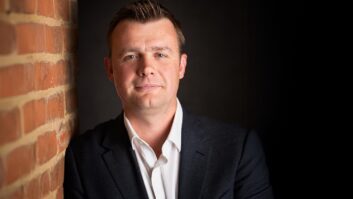So often, when the word ‘skills’ has occurred in the broadcast and media press in recent years, it has been followed immediately by the word ‘crisis’. Cumulatively, the sense of an industry falling deeper into an existential malaise in which senior engineering and technical roles – as well as many junior positions, too – are increasingly difficult to fill has become ever-harder to ignore. Along the way, multiple background factors – most obviously the pandemic – have added to the uncertainty.
Whilst complacency about future skills issues has largely dissipated, there is plenty else to distract businesses right now. In a recent article for TVBEurope, Carrie Wootten, co-founder of the Global Media & Entertainment Talent Manifesto, highlighted the current ubiquity of the phrase ‘survive to 25’ as companies negotiate a complex web of business challenges and phenomenal technological change. She also cited multiple troubling statistics, including the IABM’s finding that 80 per cent of its members are still struggling to recruit people into engineering and technical roles.

But if the response from individual companies seems to vary considerably, there is good reason to be cheered by the recent explosion in broader industry initiatives focused on improving the range and accessibility of broadcast and media training. From projects aimed at engaging with school children and students from diverse backgrounds and introducing them to the potential of careers in TV and radio production, to those geared towards ongoing training for people already embedded in the industry, it’s fair to say that – from a cooperative perspective, at least – media education and training are enjoying something of a renaissance.
Industry ready
One of the most prominent UK organisations working to build a fresh talent pipeline is The Global Academy, a University Technical College based at The Old Vinyl Factory complex in Hayes, Middlesex, previously the home of EMI’s legendary pressing plant. Sponsored by commercial radio group Global, the college – which targets students aged between 14 and 19 – has grown from an initial 100 students to a current intake of around 500. Students joining at 14 complete their GCSEs alongside creative qualifications in media, art, business and digital, while a second group beginning their studies at 16 pursues a “more focused curriculum around different elements of media and broadcast”.
Assistant principal Jonathan Jacob has been involved since the Academy began in 2016. He recalls that a big part of the initial impetus was the need to “provide the technical skills that young people were coming into the industry without – as well as a kind of commercial acumen [that they require]. So delivering practical hands-on training alongside a commercial entrepreneurship readiness has been a guiding light across the past eight years.”

The college offers the new T Level Media, Broadcast and Production qualification. Unveiled in 2023, T Levels comprise a two-year qualification for 16-19 year-olds, equivalent to 3 A Levels, and designed in collaboration with employers. It includes a 45-day compulsory work placement, underlining the fact that “what students are learning about is what’s actually happening out in the industry”.
The Academy’s work continues to flourish in multiple directions. In addition to a “really structured mentoring programme” that entails 40 Global employees working with a student on a six-month basis to help them become “industry-ready”, the broadcasting arm of Global takes on between 8 and 12 graduates each year to become apprentices. The Academy will soon launch a ‘Saturday school’ aimed at 13- to 16-year-olds, whilst a commitment to growing diversity means that 65 per cent of its students come from non-white backgrounds.
Mentoring mission
Whilst the Global Academy has a broad remit aimed at preparing young people for a wide range of media careers, ACCESS:VFX has a more specific emphasis on the visual effects and animation industries. A global non-profit comprising 70 studios, industry groups and educational establishments, the organisation has an explicit focus on “pursuing and encouraging inclusion, diversity, awareness and opportunity under our four pillars of Inspiration, Education, Mentoring and Recruitment”.
Founder Simon Devereux, who is also director of global talent development at Framestore, points to a dual focus that includes “entry-level aspiring talent – people who are discovering visual effects – and on the flip side, people who are already in our industries.” In both cases, an emphasis on “under-represented communities” is a key component: “We want to create a space [for people who] don’t necessarily see themselves represented within studios, so we create that network for them [which means they] can continue to grow and incubate that within the wider global industry.”

Along with a busy “yearly programme of events and podcasts”, ACCESS:VFX has cultivated a mentoring programme that has grown from a small London-based initiative in 2017 to a global network of over 3,000 people.
“Anybody can sign up for it who’s 13 years and over, and it gives you a space to get feedback to learn the software you’re working on, and to learn the human skills that are going to help build your network,” says Devereux. “So let’s say you’re a 15-year-old from Birmingham who has creative learnings; it could be that you sign up and your mentor could be a creative director or effects supervisor working in LA, Berlin or New Zealand. What a way to kick off your network and then have somebody who is an established effects professional to give you first-hand advice.”
This article extract is taken from TVBEurope’s October/November 2024 issue. To continue reading, download the magazine for free here.







